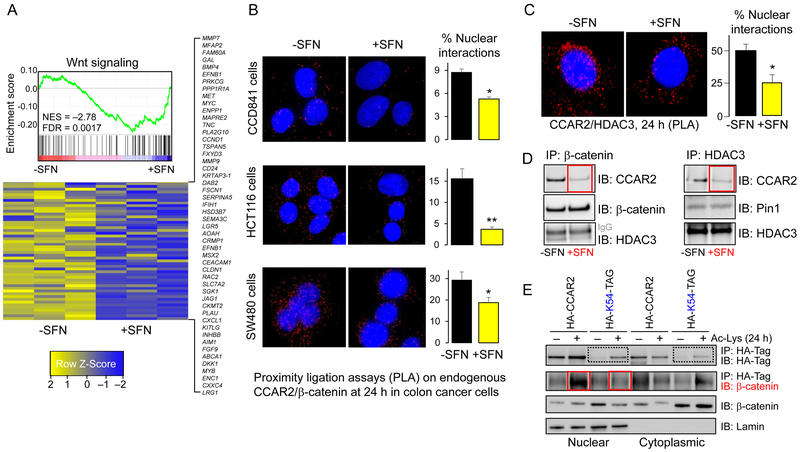Figure 3.
CCAR2 protein interactions are disrupted by SFN treatment, and genetically encoded acetylation of CCAR2 Lys 54 blocks β-catenin interactions. A, RNA-seq data from HCT116 colon cancer cells, 6 h after treatment with SFN or vehicle. Each column is a biological replicate (n=3). Wnt signaling was among the top five cancer-related pathways altered by SFN (49), and gene set enrichment analysis (GSEA) prioritized 118 Wnt-related genes among 22727 genes in the dataset. B, PLA identified endogenous interactions of CCAR2 and β-catenin proteins. Cells were imaged 24 h after treatment with SFN or vehicle. C, The approach in B, used to examine endogenous CCAR2/HDAC3 interactions. Data bars designate mean±SD (n=3); *P<0.05, **P<0.01, compared with vehicle. D, 24 h after treating HCT116 cells with SFN or vehicle, nuclear extracts were subjected to IP/IB. E, A system for genetically encoding lysine modifications on histones (23) was used to engineer K54 acetylation on CCAR2. Nuclear and cytoplasmic extracts were subjected to IP/IB with the antibodies shown, 24 h after addition of Ac-Lys, to trigger the designed acetylation on CCAR2. The data shown in each figure panel are from a single experiment in each case, and are representative of the findings from two or more independent experiments.

